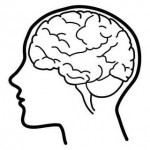 Research: In 2014 the American Academy of Pediatrics issued a study that middle and high schools shouldn’t start earlier than 8:30 am. A new study moves that time to 10 am, which has caused quite a stir in the education community. Critics move quickly to disregard the research for the “realities” of time management. They fail, however, to reimagine school in different terms, where we don’t have to be bound by a traditional 7-hour day and we can pay attention to how kids really learn. Study after study confirms that the biological changes during adolescence require teens to get about 9 hours of sleep and re-wire them to both go to bed and wake up later. The effects of what can become irrevocable sleep loss include reduced cognitive responses, increased emotional responses, and increased risk of physical responses and disease. This adds up to grumpy teens who aren’t ready to learn and can’t work at their potential.
Research: In 2014 the American Academy of Pediatrics issued a study that middle and high schools shouldn’t start earlier than 8:30 am. A new study moves that time to 10 am, which has caused quite a stir in the education community. Critics move quickly to disregard the research for the “realities” of time management. They fail, however, to reimagine school in different terms, where we don’t have to be bound by a traditional 7-hour day and we can pay attention to how kids really learn. Study after study confirms that the biological changes during adolescence require teens to get about 9 hours of sleep and re-wire them to both go to bed and wake up later. The effects of what can become irrevocable sleep loss include reduced cognitive responses, increased emotional responses, and increased risk of physical responses and disease. This adds up to grumpy teens who aren’t ready to learn and can’t work at their potential.
Practice: At Chrysalis we understand that every student is unique. We know that for learning to occur basic well-being must take priority, so we schedule according to each individual’s needs. Those who are able to start early are allowed to, but very few students at our high school start before 9 am. Likewise, those who need more sleep in the morning are allowed a later start. Sometimes we see that a particular subject just isn’t working as the first class of the day and we can shift it to the afternoon to take advantage of peak brain time. It’s all about optimizing the conditions for learning.
